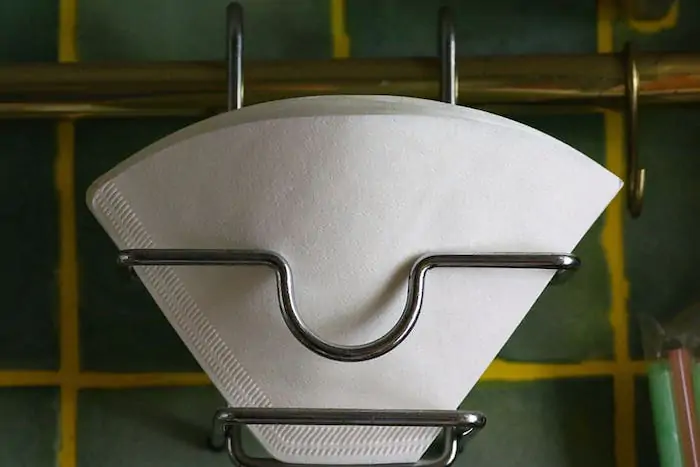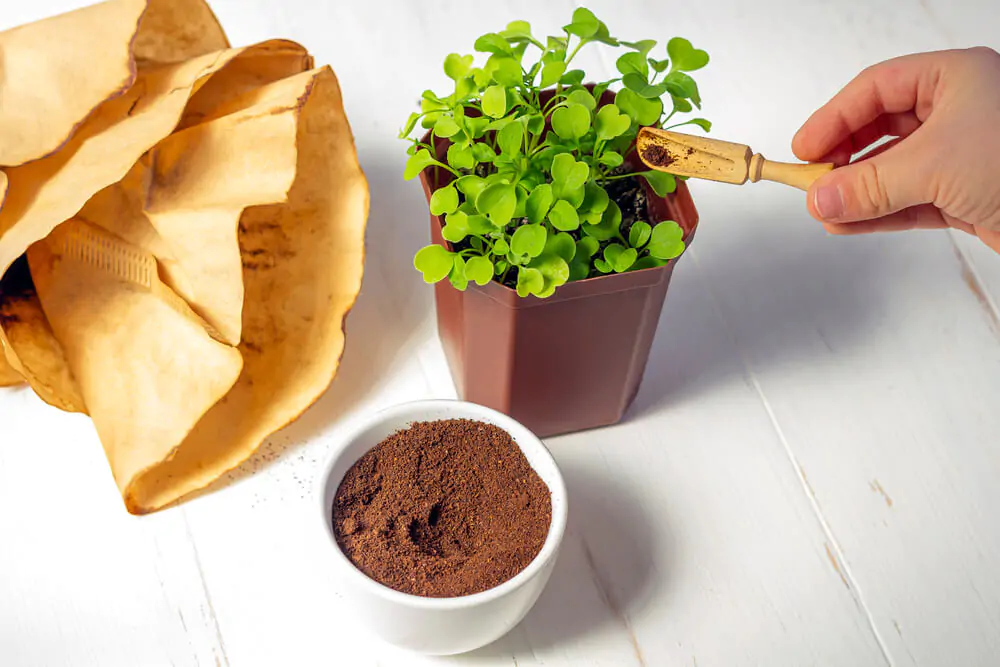A great cup of Chemex filter coffee is tasty. Here I compare Chemex filters natural vs. white.

I love a great cup of filter coffee in the morning, and while this means I am careful with my chosen brew, I had never given much thought to my choice of filters before. My preferred coffee maker is Chemex. I have used both white and natural filters.
So I decided to try my own test to really taste which filter was better. I poured boiled mineral water through both filters, without adding a coffee grind.
Once cooled, I had a taste, and I was surprised. The filter I had believed to be the best wasn’t delivering the best-tasting water.
- What Are Chemex Filters?
- What Natural Filters And White Filters Have In Common
- Chemex Filters Natural Vs. White: The Differences
- What’s Better About Chemex Natural Filters?
- What’s Better About Chemex White Filters?
- Who Should Get Chemex Natural Filters (And Why)?
- Who Should Get Chemex White Filters (And Why)?
- Chemex Natural Filters Vs. Chemex White Filters FAQs
What Are Chemex Filters?
Chemex filters come in two varieties: white and natural. These filters are specifically designed for the Chemex coffee maker. They are made from thicker paper than regular coffee filters.
Their shape folded design, and funnel construction helps channel hot air out of the lower chamber of the Chemex coffee maker. This means you have better coffee because the lower chamber isn’t blocked, helping the filter release CO2 and evaporation.
These little folded squares help ensure my coffee is smooth, free from oils, particles, and other undesired elements that may be part of the coffee grind. What I like is that there are different designs available from the squares and circles to the cylinder filters. Whichever of these I choose, I know the quality is good and a white circle filter will be the same as a white square filter.
What Natural Filters And White Filters Have In Common

Natural and white Chemex filters are essentially similar in most aspects. The paper density and composition are identical, and the shape of both are also similar. Both kinds of Chemex filters are washed in warm water baths, removing any loose particles to give my coffee the best chance of being filtered to perfection.
Chemex Filters Natural Vs. White: The Differences
| Chemex White Filters | |
| Whitened using an oxidizing bath | No bleaching or oxidizing baths, natural paper and better for the environment |
| Several warm water rinses to remove any residues | Rinsed using warm water |
| Results in the cleanest paper filter | Dried and packed |
| Zero aftertaste as a result of cleaning process | A naturally brown paper filter that does have a slightly wet-paper aftertaste |
What’s Better About Chemex Natural Filters?
The main benefit of a natural Chemex filter is that it is better for the environment. The chemical process of whitening paper, especially through bleaching, is harmful to the environment and contributes to pollution. I guess I’m a bit sappy, but I do care about the environment, making the natural filter better than the white filter (at least, when I’m happy with a standard brew).
What’s Better About Chemex White Filters?

If I can put my environmental conscience aside, which I do quite often (I’m human and love great coffee), white Chemex filters provide unparalleled pure filtered coffee. These filters remove any aftertaste, and the white paper is just so much better since they don’t add that wet-paper taste I discovered in my earlier testing.
Who Should Get Chemex Natural Filters (And Why)?

If environmental friendliness is your main concern, and you gag on a great cup of coffee because you know it was brewed with a white filter, then you should absolutely go for the natural filter. I might add as a tip that when you pre-rinse your filters with boiling water (at least twice), you can reduce that wet-paper taste, improving the overall taste of your brew.
The pre-rinse isn’t all that difficult either. Simply fit the filter in your Chemex as normal, then pour the same volume of hot water as your cup of coffee through the paper. Wait for the water to strain and then remove the filter.
Pour out the filtered water from the lower chamber, then replace the filter and repeat. After two rinses, the paper will work effectively as a filter, and no longer have the bark-taste that is typical of unbleached paper.
I love Chemex filters, but while the natural one is better for the planet, the white one is better for my pallet. That said…
Who Should Get Chemex White Filters (And Why)?
I prefer the white filters, though I do recycle them to soothe my conscience. Anyone who is concerned with making a great cup of coffee will prefer the white filters.
These filters are the best for brewing a pure-tasting coffee. White filters remove all oils and particles, but they leave none of the paper pulp taste behind in your coffee cup. Yum!
Chemex Natural Filters Vs. Chemex White Filters FAQs
Should Filter Papers Be Rinsed Before Brewing?
This is not a requirement, though it does improve the taste of natural filter-produced brew and it can also help boost flavor in white filter brews.
What Are The Health Benefits Of Chemex Filters, And Does This Apply To White And Natural Filters?
Filtering coffee removes the bad cholesterol-causing oils that coffee contains. This applies to ALL Chemex filters.

